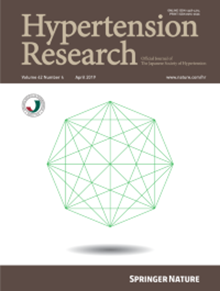Maternal exercise represses FGF21 via SIRT1 to improve the phenotypic transformation of vascular smooth muscle in hypertensive offspring
IF 4.3
2区 医学
Q1 PERIPHERAL VASCULAR DISEASE
引用次数: 0
Abstract
Maternal exercise during pregnancy is widely recognized as an effective means of promoting cardiovascular health in offspring. Few studies have explored how maternal exercise impacts vascular function and phenotypic switching in hypertensive offspring, despite the known involvement of vascular structural and functional remodeling in hypertension pathogenesis. Research indicates a significant relationship between elevated blood pressure and fibroblast growth factor 21 (FGF21) levels. It remains unclear whether maternal exercise during pregnancy can improve vascular function in hypertensive offspring by regulating FGF21 and its underlying mechanisms. In this study, pregnant spontaneously hypertensive rats and Wistar-Kyoto rats were randomly assigned to either a sedentary or exercise group. The exercise group underwent weightless swimming exercise from gestation day 1 (GD1) to GD20. The aim was to investigate the epigenetic modifications mediated by histone deacetylase sirtuin 1 (SIRT1) during the fetal period and the phenotypic changes in the mesenteric arteries (MAs) of hypertensive offspring. We found that maternal exercise significantly improved vascular remodeling in hypertensive offspring. Specifically, maternal exercise upregulated SIRT1 expression, which led to decreased H3K9ac (histone H3 lysine 9 acetylation) in the promoter region of the FGF21 gene. This epigenetic modification resulted in the transcriptional downregulation of FGF21 in the MAs of hypertensive fetuses. These results suggest that maternal exercise may lower blood pressure in hypertensive offspring by regulating deacetylation of the FGF21 gene promoter region through SIRT1, thereby reversing phenotypic switching and vascular structural remodeling.

母体运动通过 SIRT1 抑制 FGF21,从而改善高血压后代血管平滑肌的表型转变。
孕期母体运动被广泛认为是促进后代心血管健康的有效手段。尽管已知血管结构和功能重塑与高血压发病机制有关,但很少有研究探讨母体运动如何影响高血压后代的血管功能和表型转换。研究表明,血压升高与成纤维细胞生长因子 21(FGF21)水平之间存在重要关系。孕期母体运动是否能通过调节 FGF21 及其内在机制改善高血压后代的血管功能,目前仍不清楚。在这项研究中,怀孕的自发性高血压大鼠和 Wistar-Kyoto 大鼠被随机分配到静坐组或运动组。运动组在妊娠第 1 天(GD1)至妊娠第 20 天期间进行无负重游泳运动。目的是研究组蛋白去乙酰化酶sirtuin 1(SIRT1)在胎儿期介导的表观遗传学修饰以及高血压后代肠系膜动脉(MAs)的表型变化。我们发现,母体运动能明显改善高血压后代的血管重塑。具体来说,母体运动可提高 SIRT1 的表达,从而降低 FGF21 基因启动子区域的 H3K9ac(组蛋白 H3 赖氨酸 9 乙酰化)。这种表观遗传修饰导致了高血压胎儿 MA 中 FGF21 的转录下调。这些结果表明,母体运动可通过SIRT1调节FGF21基因启动子区域的去乙酰化,从而逆转表型转换和血管结构重塑,从而降低高血压后代的血压。
本文章由计算机程序翻译,如有差异,请以英文原文为准。
求助全文
约1分钟内获得全文
求助全文
来源期刊

Hypertension Research
医学-外周血管病
CiteScore
7.40
自引率
16.70%
发文量
249
审稿时长
3-8 weeks
期刊介绍:
Hypertension Research is the official publication of the Japanese Society of Hypertension. The journal publishes papers reporting original clinical and experimental research that contribute to the advancement of knowledge in the field of hypertension and related cardiovascular diseases. The journal publishes Review Articles, Articles, Correspondence and Comments.
 求助内容:
求助内容: 应助结果提醒方式:
应助结果提醒方式:


